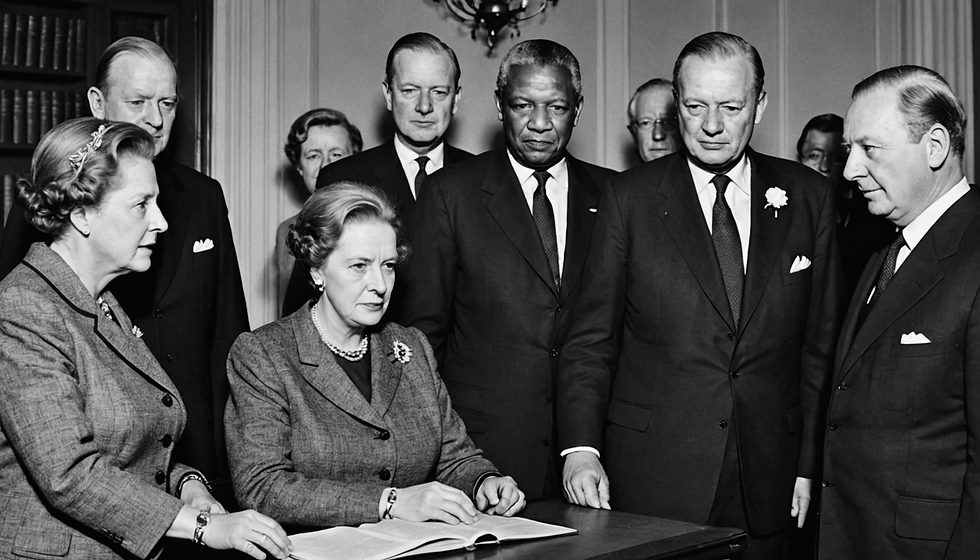Rose-Marie Boylan on Oncology: Burden of illness calculations for drugs & new technologies
- R.M. Boylan

- Jul 27, 2021
- 4 min read

Health economics & Outcomes Research Value-based arguments:
The burden of illness methodology in health economics and outcomes research is an important inquiry for understanding and legitimizing the disability and economic burden a condition presents to a society. Qualifying and quantifying its impact on population health is an essential prerequisite to understanding the cost burden of a disease on a society. The burden of illness calculation provides the critical reasoning required to set the stage on whether financial resources need to be allocated and reprioritized to address the management of the disease care gap.
If reallocated what should financial resources be reallocated to? Because governments are held accountable to tax payers & civilian tax payers based on the notion of "government requirements" in ethical theory, they need the necessary data and tools for decision-making. Decision-analytic tools are an effective alternative that provide empowering data elements which assist governments and decision-makers in balancing out resources & priorities for disease management. Some diseases like rare diseases may be newly emerging and require a burden of illness study to validate their existence and costs.
Socratic Reasoning in Assessing Burden of Illness Resources
Socrates was a philosopher who used Socratic questioning to create critical thinking in his students. He was a philosopher c. 470 BCE-c. 399 BCE (2). Socrates believed "the disciplined practice of thoughtful questioning enabled the scholar to examine ideas and then be able to determine the validity of those ideas." (3) Plato who was a student of Socrates, summarized this elaborate method of teaching as:
"when the instructor appears ignorant in mindset by asking seemingly ignorant questions the/she brings the student to a provoked state of higher levels of consciousness & knowledge acquisition." (4)
Not surprising this technique is used in law, pedagogy, and even sophisticated problem solving. The process is even dumbed down for sales people in a technique called SPIN selling.
When building files for government decision-making around pharmaceutical medicines the use of Socratic reasoning and questioning explored through the integration of all disciplines creates a framework for evaluating risks, implications as (contingency decision trade-offs) and benefits of decision scenarios for a payer or a government decision-maker.
How can we empower a decision-maker needs when faced with a decision on scarce resourcing and prioritization?
The burden of illness is a starting point. Exploring complex ideas, breaking them down mathematically, to get to the truth of things, opening up all issues and problems, uncovering assumptions, blindspots, analyzing biases to discern between what we know and what we do not know using structured logic, this helps elucidate all risks and reduce obstacles to decision-making based on uncertainty. All matters must be transparent and revealed, all sides of the story become clear that create scenarios of risk based on a cost consequence and cost benefit analysis of outcomes. (11)
Bargainers vs. Negotiators

This precipitates the discovery of logical consequence for the decision-maker and creates the foundation for an intelligent discussion/negotiation, one that is built on trust, rationale decision-making and transparency. Only then can trade-offs be made in a negotiation. Before this point we are discussing positions and with positions neither party can move towards shared outcomes. This is the difference between bargainers and negotiators.
The art of Socratic questioning is intrinsically weaved with critical thinking because it is symbolic of excellence in thought. It is intellect & logic. it is scientific inquiry; science is but one component in social, civil and political decision- making. For this reason some may find it arduous and daunting.
It has been posited that the "level of thinking that occurs is influenced by the level of questions being asked". (10) For this reason the research on the burden of illness and global burden of illness studies is of paramount importance as a first step in legitimizing the nature of consequence and the impact a disease has on a population's health.
Through the quantification and qualification of the burden of disease and/or illness we can then provide a framework for governments to have the necessary data to assess the economic, ethical, social, civil and political dimensions inherent in the decisions around treating the condition or not treating it.
References:
1). Jacques Brunschwig, Geoffrey Ernest Richard Lloyd (eds), A Guide to Greek Thought: Major Figures and Trends, Harvard University Press, 2003, p. 233. 2). Socrates Biography. The Biography.com website. A&E Television Networks. Retrieved March 31, 2018. 3). What is Socratic Questioning. Starting Point - Teaching Entry Level Geoscience. Carleton College. Retrieved March 31,2018. 4). Master's Research Ego Development, Self-actualization, self-transcendence, human consciousness; An intersection between Jane Loevinger & Abraham Maslow 1943- 1977. University of Guelph, Master's in Leadership Studies. Rose-Marie Boylan. (2009) 5). Paul, Richard; Binker, A.J. (1990). Critical Thinking: What Every Person Needs To Survive in a Rapidly Changing World. Foundation for Critical Thinking. p. 360. ISBN 0-944583-08-3. 6). Paul, R. and Elder, L. (2006). The Art of Socratic Questioning. Dillon Beach, CA: Foundation for Critical Thinking. Outstanding Teaching. UK. 7). Ennis, Robert (2011). Developing Minds: A Resource Book for Teaching Thinking, 3rd Edition. 8). Sofos, Manolis. "Critical Thinking: A Historical Overview". Thinking for Career Practical Approach (2): 1–5. 9). Yang, Ya-Ting; Newby, Timothy; Bill, Robert (January 7, 2010). "Using Socratic Questioning to Promote Critical Thinking Skills Through Asynchronous Discussion Forums in Distance Learning Environments". The American Journal of Distance Education. 19 (3): 164. 10).https://en.wikipedia.org/wiki/Socratic_questioning#Socratic_Questioning_and_Critical_ Thinking






Comments